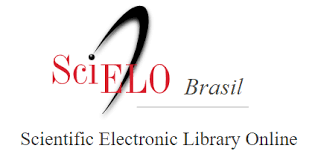CONDOMÍNIOS DE MORADIA POPULAR: O CASO DO RESIDENCIAL ZILDA ARNS NO MUNICÍPIO DE SANTA MARIA/RS
DOI:
https://doi.org/10.22481/rg.v2i2.3907Palavras-chave:
Urbano. Moradia popular. Desenvolvimento social.Resumo
A especulação imboliária nas grandes cidades e metrópoles é causadora do adensamento opulacional, além de inúmeros outros problemas, tanto em âmbito estrutural quanto social. Um dos mais ocorrentes, é a apropriação de locais impróprios para moradia, geralmente pela população de baixa renda. Com base nisso, percebe-se que muitas vezes as áreas ocupadas, precisam ser desapropriadas devido a existência de riscos para esta população, bem como por serem áreas públicas e/ou privadas, desencadeando a reintegração de posse. Deste modo, os representantes governamentais estão buscando, por meio de implantação de políticas de moradia, remover essa população dessas localidades que são consideradas inapropriadas. Apoiado nisso, o presente trabalho tem como objetivo geral, a análise do condomínio de moradia popular Residencial Zilda Arns, localizado no município de Santa Maria/RS/Brasil para compreender a atuação das políticas governamentais frente as necessidades básicas da sua população de baixa renda.
Palavras-chave: Urbano. Moradia popular. Desenvolvimento social.
Downloads
Referências
HARVEY, D. The right to the city. New left review, London, v. 53, p. 23-40, 2008.
INSTITUTO BRASILEIRO DE GEOGRAFIA E ESTATÍSTICA (IBGE). Disponível em: <http://www.ibge.gov.br/home/>. Acesso em: 5 out. 2017.
IBGE. Sinopse do Censo Demográfico 2010, Rio Grande do Sul. Disponível em: <www.censo2010.ibge.gov.br/sinopse/index.php?dados=21&uf=43>. Acesso em: 5 out. 2017.
LEFEBVRE, H. Espacio y Política: el derecho a la ciudad II. São Paulo: Editora Centauro, 5ª edicação (texto original de 1968).
MARCUSE, P. From critical urban theory to the right to the city. CITY, v. 13, n. 2-3, jun-sep 2009.
MINISTÉRIO DAS CIDADES (Brasil). Secretaria Nacional de Habitação. Déficit habitacional municipal no Brasil 2010. Belo Horizonte. Nov. 2013. Disponível em: < http://www.fjp.mg.gov.br/index.php/docman/cei/deficit-habitacional/216-deficit-habitacional-municipal-no-brasil-2010/file>. Acesso em: 16 set. 2017.
Prefeitura Municipal de Santa Maria – Escritório da Cidade. Disponível em: <http://www.escritoriodacidade.net.br>. Acesso em: 21 set. 2017.
Prefeitura Municipal de Santa Maria – Secretaria de Município de Desenvolvimento Social. Disponível em: <https://www.santamaria.rs.gov.br/seção/processo seletivo>. Acesso em: 21 set. 2017.
RODRIGUES, A. M. Moradia nas cidades brasileiras. 7 ed. São Paulo: Contexto, 1997. (Coleção repensando a geografia)
SANTOS, C. N. F. V. Novidades nos modos de Urbanização Brasileiros. In VALADARES, L. do P. Habitação em questão. 2 ed. Rio de Janeiro: Zahar editores, 1981. 196p.
SUBSECRETARIA DE ESTADO DA ORDEM PÚBLICA E SOCIAL DO DISTRITO FEDERAL. Área de Risco. Brasília, 2017. Disponível em: <http://www.seops.df.gov.br/frentes-de-fiscalizacao/2012-08-21-17-01-06/area-de-risco.html>. Acesso em 30 set 2017.
Downloads
Publicado
Como Citar
Edição
Seção
Licença
Copyright (c) 2020 Geopauta

Este trabalho está licenciado sob uma licença Creative Commons Attribution 4.0 International License.
Dos Direitos Autorais
Os autores mantêm os direitos autorais de forma irrestrita e concedem à Geopauta a primeira publicação com o trabalho simultaneamente licenciado em CC BY, que permite que outros compartilhem com reconhecimento da autoria de cada autor na publicação inicial nesta revista.
Propriedade Intelectual e Termos de uso
A Geopauta adota a política de Acesso Livre em Conformidade com o Acesso Aberto- OAC recomendado pelo DOAJ e em conformidade com os Critérios SciELO, sob uma licença Creative Commons CC By Attribution 4.0 International License, permitindo acesso gratuito imediato ao trabalho e permitindo que qualquer usuário leia, baixe, copie, distribua, imprima, pesquise ou vincule aos textos completos dos artigos, rastreie-os para indexação, passe-os como dados para software ou use-os para qualquer outra finalidade legal.
A Geopauta atribui a licença CC BY. onde é permitido sem restrições:
Compartilhar — copiar e redistribuir o material em qualquer suporte ou formato para qualquer fim, mesmo que comercial. desde que lhe atribuam o devido crédito pela criação original.
Adaptar — remixar, transformar, e criar a partir do material para qualquer fim, mesmo que comercial desde que lhe atribuam o devido crédito pela criação original.













